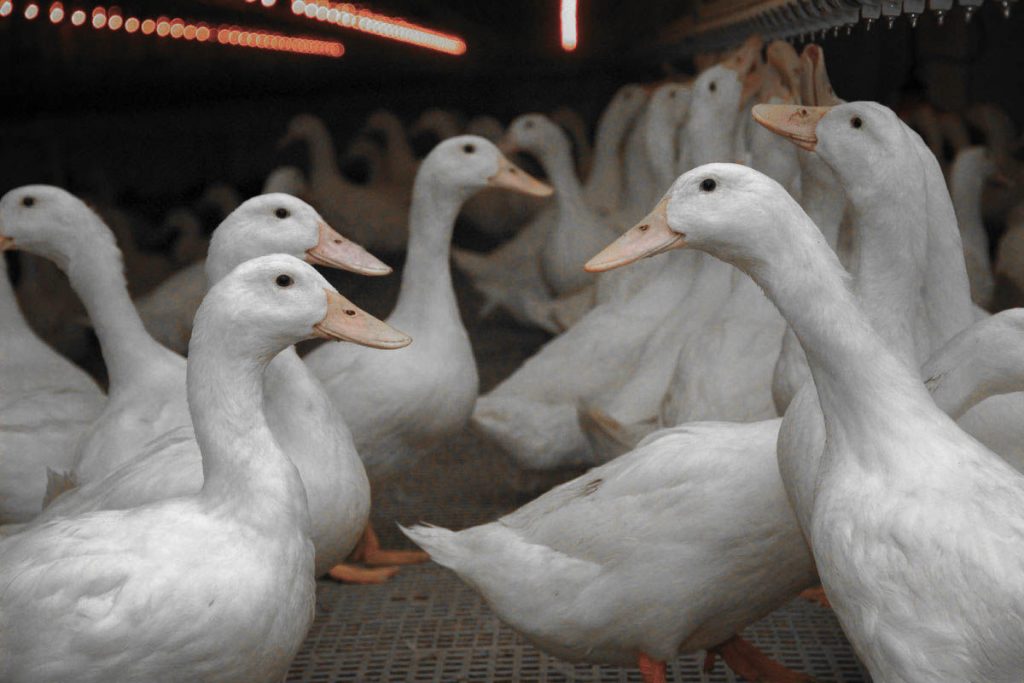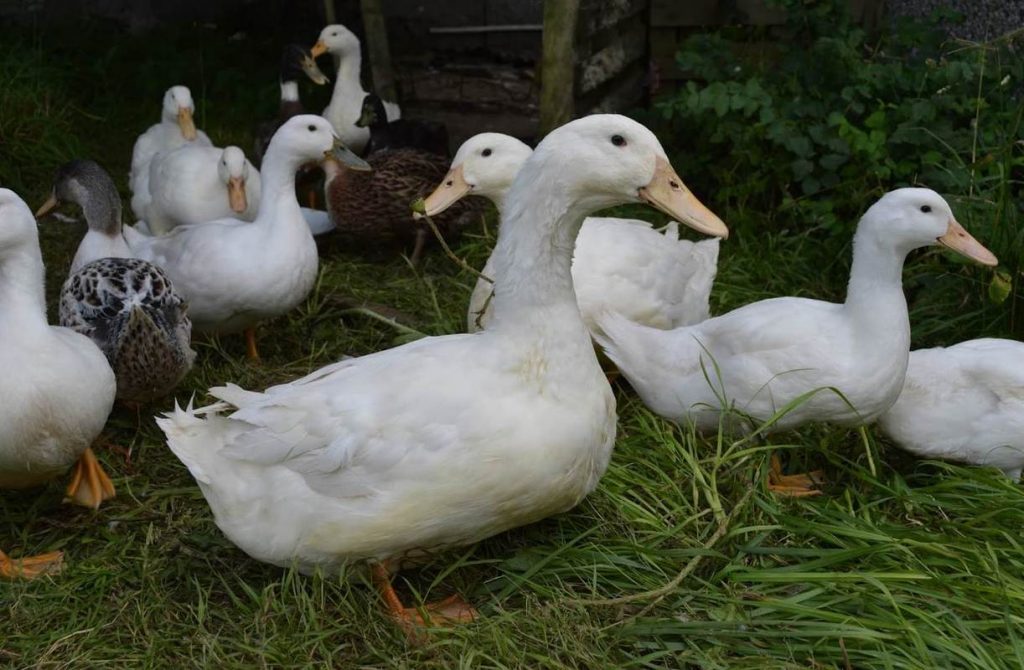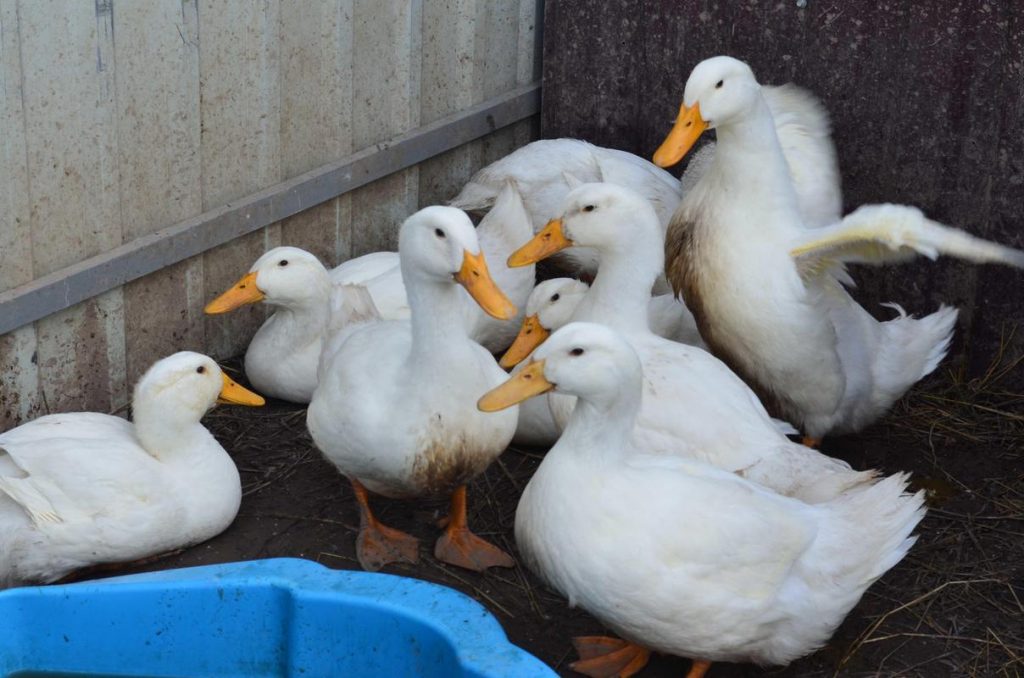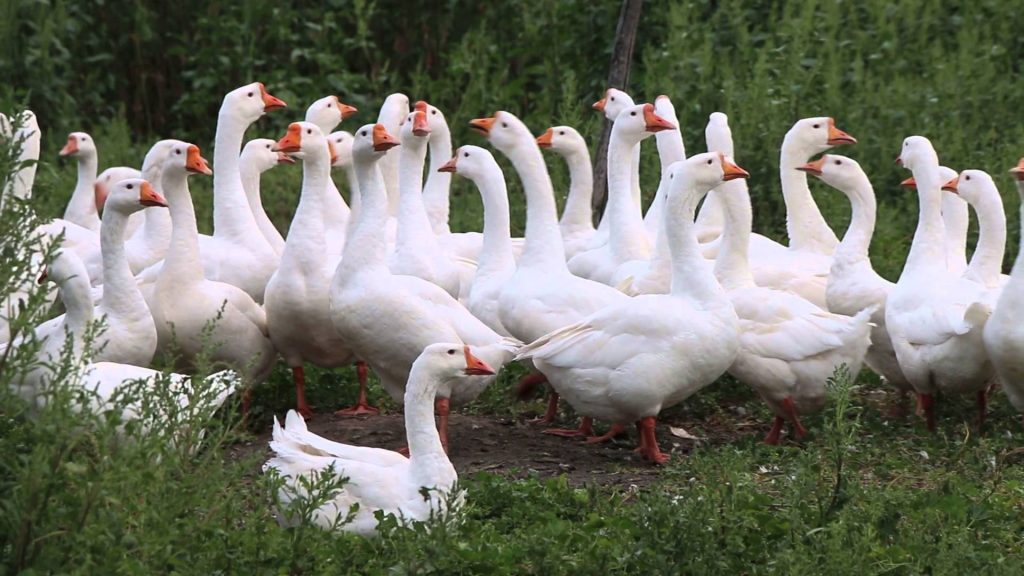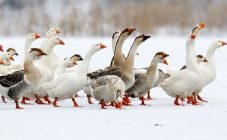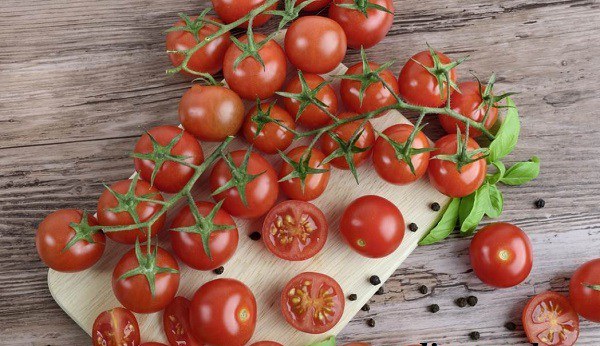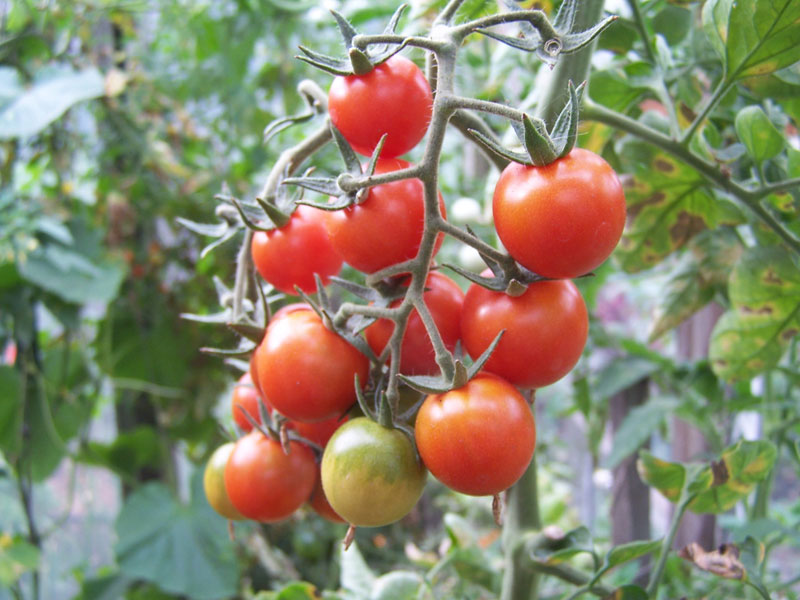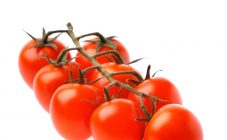Content:
Many poultry breeders are trying to pick up a picky breed of poultry. Among the ducks, the Cherry Valley breed takes pride of place. It is distinguished from the rest by its high egg production rate and the amount of meat obtained. Cherry Valley ducks were bred by English breeders at the end of the last century on the basis of Peking ducks.
The purpose of the breed was to obtain the maximum amount of meat and eggs for breeding future offspring. The British carried out work in two directions: maternal and paternal, which gave positive results on both lines. The name was given in honor of the enterprise that carried out breeding activities.
Russian large enterprises first got this breed in 1972. Later, private farms received this opportunity. Ducks are very popular because of their ease of care, stamina and rapid growth. People mistakenly call them the ducks Chilli Willie, Chereveli and so on.
Those interested should figure out who the Cherry Valley ducks are, what kind of new breed has appeared in Russia and whether it is worth paying attention to them.
Cherry Verry ducks: breed description
According to the breed description and appearance, the Cherry Valley duck resembles its ancestors - the Peking ducks. They also have an elongated duck body with a broad chest, a bulging forehead, and a thick neck. Ducks have large, deep blue eyes. The middle curved beak is presented in yellow-orange shades. The Cherry Valley duck breed has thick red or orange legs that are close to the tail. Feathers are white. Adults have a large body fat and unevenly developed muscles.
World Breed Standard:
- The duck has a vest of 3.4 to 3.7 kg, the drake weighs up to 4 kg. At the seventh week of life, the weight of a young duck becomes 2.5 - 3.5 kg.
- Adult birds have a survival rate of 98%, young birds - 95%.
- The onset of egg laying occurs at 6-7 months of age.
- The weight of one egg can reach 100 g.
Characteristics of meat
Representatives of the breed are characterized by rapid weight gain. By three months, their weight can reach 3 kg. This is achieved through a balanced diet of birds.
Cherry Valley duck meat is red in color, slightly harsh compared to white meat, excellent taste. It does not apply to a dietary type of meat (reason: long-term absorption). The advantage of this product is the high content of vitamins and microelements. The meat of young animals is most often eaten because it contains less fat and more nutrients.
Productivity
Carcass weight after slaughter is 66-68% of the total weight. From one individual, you can get up to 3 kg of meat. The most nutritious and tasty is considered to be the meat of young birds that have reached the age of 7 months.With good maintenance and balanced nutrition, one duck in six months can carry up to 100 eggs.
Bird keeping
Rules taken into account when preparing a ducklings:
- The room for keeping ducks is chosen spacious. For 1 sq. m place no more than 3 ducks.
- Ducks should be provided with light for up to 12 hours. Simple medium-bright lamps are used for additional lighting. The light should be distributed evenly.
- The temperature in the room is kept at a level not lower than +5 degrees. It is important to keep an eye on the temperature, especially on winter days. For laying ducks, the temperature should be increased.
- The ducklings should be kept in order, this will avoid the death of birds from unsanitary conditions.
- Bedding can be made from materials that absorb moisture and release heat, such as peat, sawdust or straw.
- Provide good ventilation to keep carbon dioxide from collecting in the house.
When setting up a poultry house for Cherry Valley ducks, replace the standard perches with wide beams, which should be fixed to the walls at a height of 20 cm from the floor.
You should also equip ash baths for birds. They allow the birds to clean their feathers of dirt and vermin. A wooden box is suitable for the bath, the width of which is 1.5 m, and the height is 20 cm. Ash and fine sand are poured into them. The content should be changed at least once every 20 days.
A place for walking birds should be arranged. In the spring and summer, a swimming pool is built for swimming birds. In winter and autumn, you can limit yourself to a walk around the paddock with straw bedding.
In care, this breed is not whimsical. The house should be cleaned regularly. Heavy pollution will lead to the multiplication of diseases, which can destroy all livestock. Cherry Valley have good immunity, so every poultry breeder decides for himself whether to vaccinate.
Feeders
When choosing a feeder, it should be borne in mind that Cherry ducks scatter their food around the ducklings. Therefore, a long trough with high sides should be chosen for the trough. The containers are filled by a third. Ducks should always have clean drinking water.
Nests
For the nests, cardboard boxes or wooden boxes are chosen, which are placed along one of the walls. The dimensions of the boxes for one duck should be 60 * 50 cm, and the height - 10 - 25 cm. The number of nests is made twice as much as the number of birds.
Feeding adults
Poultry houses often ask how and how much to feed the Cherry Valley ducks. It is important to figure out how to make a balanced diet for your birds at home.
Ducks are fed 2-3 times a day. There are 2 types of food:
- Dry food. It is most often used in industrial farms for automated feeders. It is a granules of vitamins and vegetables.
- Combined feed. This diet includes a damp mash feed in the morning. For its preparation, bran, grass flour, fish waste, boiled root crops are used. The mash is diluted with water. You can also give whey or yogurt. Evening meals include grains, oats, or barley. To improve digestion, gravel or chalk is mixed.
Feeding and caring for Cherry Valley ducklings
At the age of seven months, birds begin to lay eggs. One individual can hatch up to 20 chicks. Ducks have a well-developed parental instinct, so they can sit on eggs on their own.
Little ducklings have excellent immunity. The hatched chicks are covered with thick yellow down.The probability of death of young chicks, with proper care, is only 4%.
Nutrition for newborns should be selected in a balanced way, with special attention paid to protein foods. The first 10 days babies should receive crushed eggs, cottage cheese, kefir. On the fifth day, chopped greens, onions or nettles can be added to the diet. After 11 days, the ducklings are given root vegetables and a little mash, which are intended for adults.
Diseases
One of the most common causes of diseases is improper care and poor hygiene of the ducklings. By observing a broiler duck, it is possible to determine the lack of minerals in the food, which will lead to the death of birds.
- With a lack of vitamin A, ducks develop conjunctivitis.
- With a deficiency of vitamin E, the pulse weakens and convulsions appear.
- The lack of mineral components is marked by symptoms of an endemic disease: birds eat sawdust, small stones, tear out their feathers.
They replenish the reserves of vitamins by including greens and special vitamins in the diet of birds; the level of minerals will help restore bone meal.
A sharp change in temperature contributes to the occurrence of colds, catarrh, or omphalitis. Disease symptoms: poor appetite and inactivity of the bird.
Stale food will lead to intestinal infections and diarrhea.
Pros and cons of the breed
Breed advantages:
- High meat productivity and egg production.
- Early maturity. The weight of a 1.5 month old duck can reach 3 kg.
- Good survival rate in young individuals.
- Ducks do not require complex care.
- Even a novice poultry breeder can handle duck breeding.
The main disadvantage is the need to provide access to walks in the fresh air and water.
Raising a Chere Valley duck does not require any special knowledge or skills. Proper maintenance and nutrition allows you to get a large amount of meat product in 4 months. This breed is suitable for breeding, both on the scale of a large farm, and in private farmsteads. The breed is valued for its high productivity, unpretentiousness in care and nutrition. Breeding this cross is suitable even for novice poultry breeders and will quickly achieve high results.
